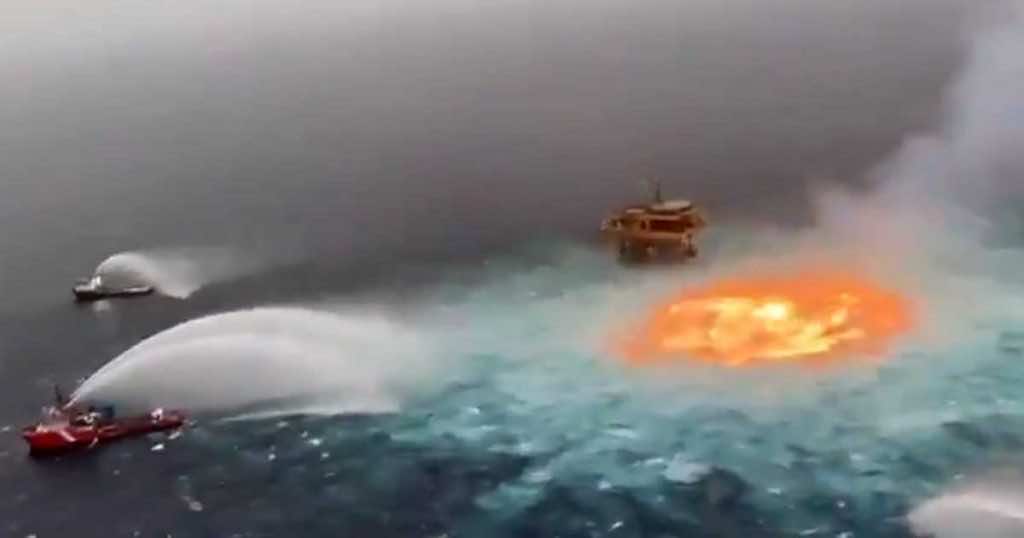Since the start of the 20th century, the human race has been warned in one way or the other about the looming climate crisis. Now, we have reached a point where it has started to wreak havoc on the planet and is steadily progressing towards an inhospitable environment. One of the key factors in making this crisis has been the excessive use of fossil fuels. But unfortunately, we have been addicted to fossil fuels without realizing the damage it has been causing.
Moreover, last year, the fiery portal to hell seemingly opened up in the Gulf of Mexico. It is leaking methane now. The apparent responsible for this mess is also an oil and gas company, Pemex.
For the people who are not well versed with the company’s shady past, in July 2021, an oil and gas pipeline in the Gulf of Mexico caught fire. It was stated that lightning struck an undersea gas leak. The ocean mixed with orange waves of flames for at least six hours before being dowsed. And now the same rig is currently leaking methane by the ton.
It was brought to light earlier this week that Ku-Maloob-Zaap leaked around 44,064 tons of methane into the atmosphere in just 24 days in August. So if we talk about it being compared to carbon, it’s the equivalent of leaking 3.7 million tons of carbon dioxide, or about the same amount as 719,926 combined homes use in electricity per year, according to the Environmental Protection Agency (EPA).
In a nutshell, we are again witnessing a catastrophic environmental disaster. Gizmodo reported that methane doesn’t stay in the atmosphere as long as CO2, but it’s estimated to be 80 times more dangerous than a greenhouse gas.
It makes one think that we are supposed to be the smartest species on the planet, and still, we are responsible for bringing this existential crisis upon ourselves.

